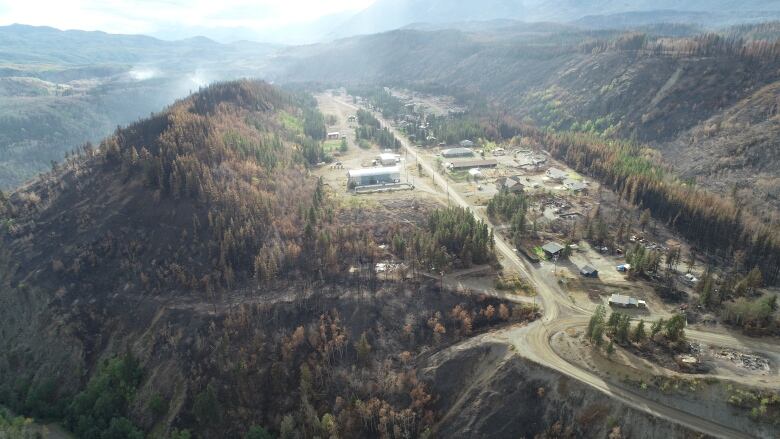Northern B.C.'s Tahltan Nation asks visitors to stay away during pandemic
'The consequence of spreading COVID-19 is too great,' reads travel advisory

A remote First Nation in northern B.C. says it will be installing gates and video surveillance to deter hunters and other unwanted visitors during the COVID-19 pandemic.
The Tahltan Nation issued a travel advisory on Thursday, asking people to avoid unnecessary travel to the communities of Dease Lake, Iskut and Telegraph Creek.
"The consequence of spreading COVID-19 is too great given the limited access to acute medical care for residents along the remote Highway 37 corridor," the advisory from the Tahltan government reads.
"Hunting and recreational activity access points, including the Stikine Bridge, will be blocked with gates, and monitored, including video surveillance."
The First Nation says officials will be patrolling its traditional territory to advise visitors of any rules or recommendations or to "leave if they choose to ignore this travel advisory."
The travel advisory says the First Nation is working with the province to get more support from RCMP and conservation officers.
The restrictionswill remain in place until B.C. enters Phase 4 of its reopening plan, it says.
The advisory says remote, Indigenous communities are more vulnerable to a COVID-19outbreak, "due to their highly social culture, limited access to timely testing, limited medical services, and access to and timely transport of patients needing critical care."
"COVID-19 has heightened sensitivities in Tahltan Territory and many Indigenous communities across B.C."












_(720p).jpg)


 OFFICIAL HD MUSIC VIDEO.jpg)
.jpg)



























































































